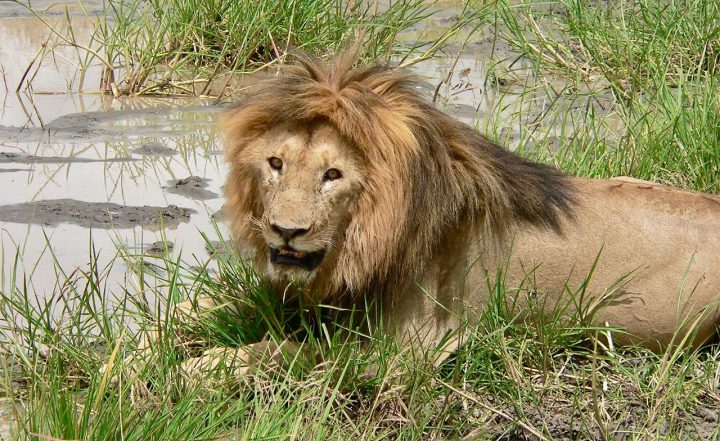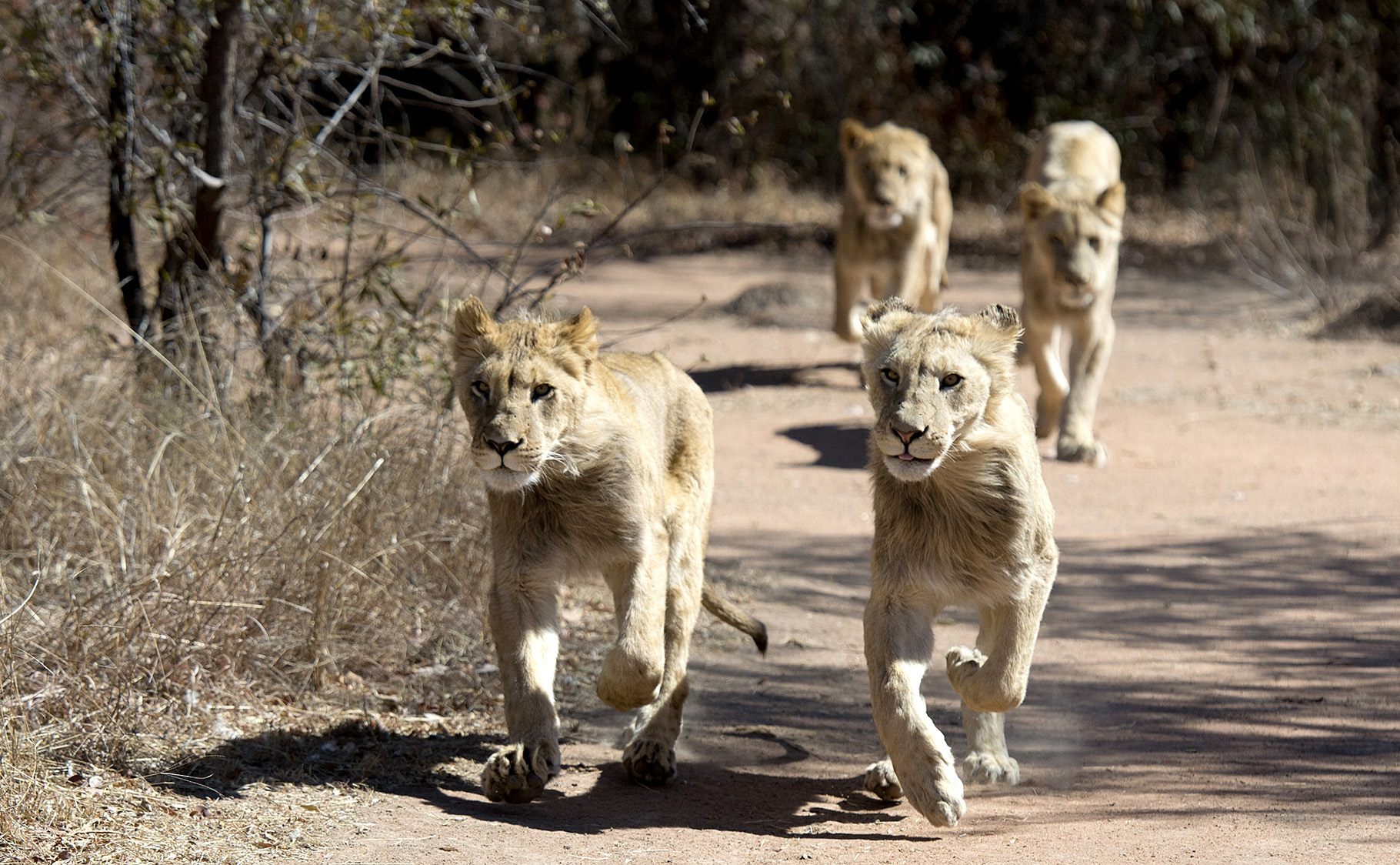WILDLIFE FARMING
Cabinet approves end to captive breeding of lions and rhinos

After nearly a decade of inquiries, reports and a parliamentary colloquium, the government has approved an end to captive breeding of lions and rhinos.
Cabinet has agreed to end the controversial captive breeding of lions and rhinos. It approved a Policy Position submitted by Environment Minister Barbara Creecy to close lion facilities and end commercial exploitation of lions and ‘canned’ hunts.
Cabinet also agreed to phase out intensive management and captive breeding of rhinos and to enhance the conservation of wild leopards. It also agreed to limit the live export of lions, elephants, leopards and both rhino species to only habitats within Africa. This effectively curbs the growing Asian demand for zoo specimens.
On the export of rhino horn and ivory, the policy says South Africa would work to support international trade, only when “conditions became favourable”. It does not specify what these conditions are, but does provide a local platform upon which the contested CITES ban on export can be debated. It says there is “no immediate intention to trade in rhino horn.”
According to a media statement by the Department of Forestry, Fisheries and Environment, the policy “will transform practices within the wildlife industry that are not conducive to animal well-being and promote conservation and sustainable use of biodiversity in general, and these species in particular.

Cubs running at the farm of Willie Jacobs in Brits, North West Province. The farm was heavily criticised after the release of Blood Lions, a 2015 canned hunting exposé. (Photo: Gallo Images / Rapport / Herman Verwey)
“This will enhance South Africa’s position as a megadiverse country and leader in the conservation and sustainable use of these iconic species.”
The policy is the result of nearly a decade of inquiries, reports, a parliamentary colloquium and increasing local and international abhorrence of ‘canned’ lion hunting which was highlighted in a shocking film flighted in 2015 called Blood Lions.
These inquiries include the Rhino Committee of Inquiry (2015), the Parliamentary Portfolio Committee Lion Colloquium on lion breeding (2018), the High-Level Panel Report on lions, rhinos, elephants and leopards (2021) and the White Paper on Conservation and Sustainable use of South Africa’s Biodiversity (2023).
More recently, the collapse of rhino farmer John Hume’s breeding programme left the fate of around 2,000 rhinos at risk until it was saved through a purchase for relocation by the NGO Africa Parks. The fate of his considerable stockpile of horns is unknown.
Read in Daily Maverick: Hume’s herd of 2,000 African rhinos get a last-minute ‘lifeline’ in major purchase and rewilding project
The acceptance of the Policy Position coincides with the release for discussion by the Environment Department of a Biodiversity Economy Strategy. This proposes to grow areas under conservation — called mega living conservation landscapes — from 20 million hectares to 34 million hectares by 2040, an area equal to seven Kruger National Parks.
The strategy envisages an increased focus on tourism in these landscapes as well as more Big Five animals available for fair-chase trophy hunting.
It also envisages an expansion of recreational and traditional hunting, wild meat harvesting and fishing, and the increased use of indigenous plants and insects for food. The plan massively extends areas under a form of protection.
Read more in Daily Maverick: Ramaphosa and Creecy defend controversial ‘biodiversity business’ plan
The banning of captive-bred lion farming raises the issue of what to do with around 10,000 lions. A departmentally appointed panel has been discussing this since its appointment last year and its recommendations are due for release shortly.
Captive-bred lions cannot be rewilded because of genetic inbreeding, poor condition of many and because lions are social animals which are taught to hunt and survive in open systems by a pride.
There seems to be three options: euthanise, open them for hunting or fund their care in sanctuaries. It’s likely that a mix of these solutions will be considered.
The Policy Position calls for enhanced conservation of wild rhinos and elephants under private, community and state ownership, an acknowledgement that private ownership of wildlife – unique to South Africa – has been a conservation success story. It makes a clear distinction between intensive wildlife farming and wild ranching, which would include private game reserves.
It says the captive lion industry involves intensive and selective breeding, handling, hunting of captive or captive-bred lions and lion bone and other derivative trade. “This threatens South Africa’s reputation as a leader in the conservation of wildlife and as a country and destination with iconic wild lions.
Read more in Daily Maverick: ‘I’m a lion farmer. No one takes my lions’: Breeders threaten court action over industry closure
“Although some operators may implement acceptable standards of welfare, there are major animal welfare contraventions in the industry in general. This policy objective seeks to ensure duty of care towards lions.”
The Policy spells out the steps required:
- Halt domestication of lions in controlled environments;
- End exploitation of captive and captive-bred lions;
- End the captive breeding of lions, including through sterilisation;
- Close captive lion facilities;
- Develop an exit process in respect of the disposal of lions in existing captive facilities;
- Monitor the impacts on breeding of other cat species, and ensure that poor lion practices are not transferred to other species;
- Improve security for wild lions to prevent a shift to illegal killing for derivatives from wild lion populations;
- Expand the number and distribution of extensive wildlife systems containing free-roaming lions;
- Address the future employment of workers in the industry;
- Develop enabling regulatory tools for ending the keeping, breeding, handling, and trade in captive lions and their parts and derivatives, hunting of captive and captive-bred lions and establishment of new captive lion facilities.
Implementing these actions, says the Policy Position, will result in closure of the captive lion industry. DM


















“I’m a Lion Farmer..No one takes MY lions…”
I thought the constitution clearly states that WILD animals cannot be “owned” by anybody. Let alone breed them.
The 21st Century is where we at.
Best we get with it…Educate..Conserve…Protect.
Don’t abuse yhe “use” of for your own ends.
Nature is natural.
Let it be so.
You just carry on doing what God set out for you to do.
And that is being a Protector and a Custodian of the wildlife….and all will go well with you.
If the god you are referencing is the meglomanical, genocidal, mysogynistic, narcissistic, racist Yahweh of the Bible, I can hardly imagine why he/she/it would give a fig about wildlife when he/she/it was quite happy to exterminate all in a massive deluge. Indeed, the biggest impediment to wildlife conservation is the vain anthropomorphism preached by the Abrahamic faiths, wherein Homo sapiens are priviledged to drastically overpopulate our pale blue dot in the cosmos and consume as if resources were inexhaustible.
Wow! Somebody must have hurt your feels to warrant such a rant.
“I thought the constitution clearly states that WILD animals cannot be “owned” by anybody. Let alone breed them.” No, quite the opposite. If a farmer has a Certificate Of Adequate Enclosure, the animals specified in the certificate are owned by the farmer, and he may breed them and buy or sell them. Please ckeck your facts before you comment.
Lots of blah blah but no clear reason why rhino farming should not continue. The animals are protected, unlike their precarious existence in national parks. Regular (non-lethal) harvesting of the horns brings in funds to keep the farms going and is an additional protection against their poaching. Supplying the horn market regularly also keeps a lid on ridiculously high prices, further reducing the incentive to poach the park rhinos.
I forsee a big increase in the poaching of wild lions for the muti trade. The minister speaks of increasing security for wild lions, but how does she intend to accomplish this?
The intentions behind ending such practices may seem noble, the repercussions could be far-reaching and dire for these majestic creatures.
Captive breeding programs have long been hailed as a means to safeguard endangered species from extinction. They provide a controlled environment where animals can reproduce without the threats they face in the wild, such as habitat loss and poaching.
However, the decision to halt these programs could have devastating consequences.
Taking the easy way out by banning captive breeding may seem like a quick fix, but it overlooks the complex dynamics at play in wildlife conservation. Instead, we must pursue solutions that strike a balance between protecting endangered species and addressing the underlying drivers of poaching and illegal trade.
The decision to end captive breeding of lions and rhinos carries significant risks for the future of these species.
Rather than resorting to drastic measures, we should have opted for the responsible management and regulation of breeding programs, ensuring a brighter future for wildlife around the globe.
I agree with your statement regarding “responsible management and regulation “, but here is the big BUT, at this time there appears to be little to no ability in this country to do anything that resembles “responsible management” and regulatory accountability.
At last – now just needs to be implemented.
The only form of breeding that needs state control is the human animal. Already this species is threatening our whole planet
This reeks of populism on the eve of an election. Personal views aside, breeding of lions (or any other animal for that matter) is an industry that employs people, pays taxes and contributes to the GDP.
“Enhance(ing) South Africa’s position as a leader in the conservation” is a cold comfort to the people who are sure to lose their livelihoods from this decision.
DEATH CERTIFICATE FOR LIONS AND RHINOS. signed B. Creecy and other pillocks.
One of the steps required by the policy “Expand the number and distribution of extensive wildlife systems containing free-roaming lions”. A moment’s reflection will tell you that in this day of land hunger, and land claims, this is not going to happen. Not a well thought out policy.
This is a step in the right direction with lots of steps still to come it seems. But, good news nevertheless.